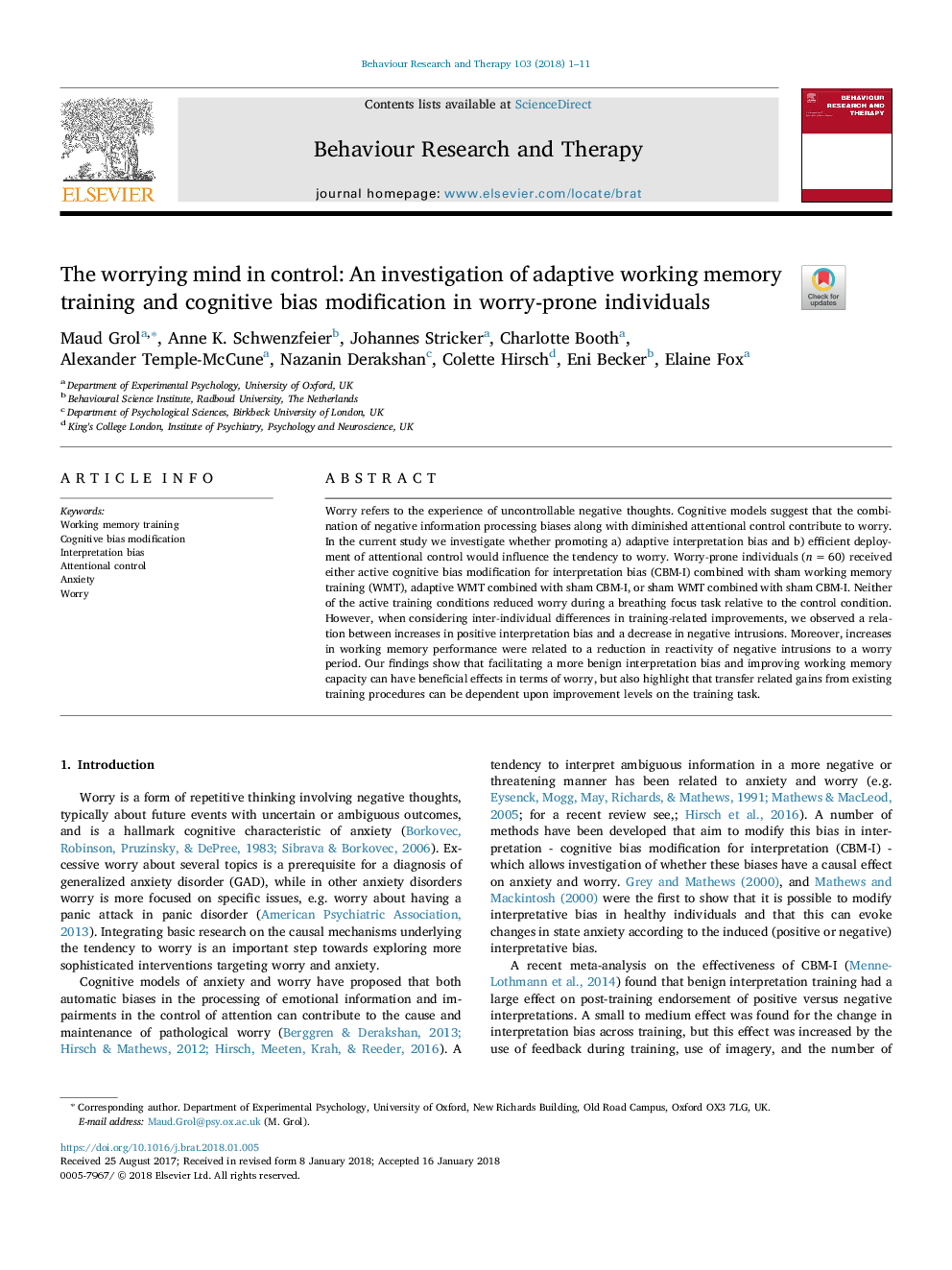ترجمه فارسی عنوان مقاله
نگرانی ذهن در کنترل: بررسی کارآمدی حافظه کار سازگار و اصلاح رفتار متعصب شناختی در افراد نگران کننده
عنوان انگلیسی
The worrying mind in control: An investigation of adaptive working memory training and cognitive bias modification in worry-prone individuals
| کد مقاله | سال انتشار | تعداد صفحات مقاله انگلیسی |
|---|---|---|
| 120026 | 2018 | 11 صفحه PDF |
منبع

Publisher : Elsevier - Science Direct (الزویر - ساینس دایرکت)
Journal : Behaviour Research and Therapy, Volume 103, April 2018, Pages 1-11
ترجمه کلمات کلیدی
آموزش حافظه کار، اصلاح تعصب شناختی، تعصب تعبیر، کنترل ذهنی، اضطراب، نگرانی،
کلمات کلیدی انگلیسی
Working memory training; Cognitive bias modification; Interpretation bias; Attentional control; Anxiety; Worry;

